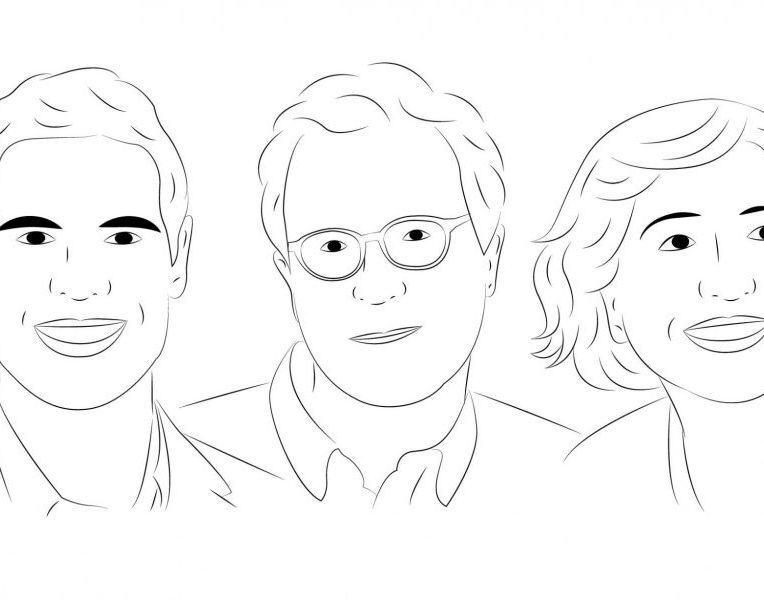The Lirical Mandate / El mandato del canto
Antología de poesía venezolana del siglo XX
Nacida en Puerto Cabello, Carabobo, Ida Gramcko estudió filosofía en la Universidad Central de Venezuela, donde también enseñó literatura antes de trasladarse al Instituto Pedagógico de Caracas y luego al Centro de Artes Gráficas. Desde 1939 y hasta su muerte, escribió para varios periódicos explorando una variedad de temas que iban desde la cultura hasta la ciencia. En 1948, Gramcko se desempeñó como Encargada de Negocios de Venezuela en la URSS. Ganó el Premio Nacional de Literatura en 1977. Entre sus libros se encuentran Umbral (1941), Poemas (1952), Poemas de una psicótica (1964) y Salto Ángel (1985). “Cementerio judío (Praga)”, una meditación notable sobre la muerte y la memoria después del Holocausto, fue escrita después de una visita a Checoslovaquia.
Born in Puerto Cabello, Carabobo, Ida Gramcko studied philosophy at Universidad Central de Venezuela, where she also taught literature before moving to the Instituto Pedagógico de Caracas and later to Centro de Artes Gráficas. Since 1939 and until her death, she wrote for several newspapers exploring an array of topics that ranged from culture to science. In 1948, Gramcko served as Venezuela’s Chargé d’Affaires at the USSR. She won the National Prize for Literature in 1977. Among her books are Umbral (Threshold, 1941), Poemas (Poems, 1952), Poemas de una psicótica (A Psychotic’s Poems, 1964) and Salto Ángel (Salto Angel, 1985). “Cementerio judío (Praga)” (Jewish Cemetery [Prague]), a remarkable meditation on death and memory after the Holocaust, was written after a visit to Czechoslovakia.
Cementerio judío (Praga) (fragmento)
El orden sufre, lo transido acaba,
todo está en blanco, en doncellez, suspenso,
todo está en ave en formación, en ala
aún no rendida a la embriaguez del viento.
A la impaciencia virginal que aguarda
le va creciendo en derredor un lecho
nacido entre residuos que trabajan
con trizaduras de ámbito y de cuerpo.
Destino manifiesto en amenaza,
flecha que se dispara desde un resto.
El yo, en caída vertical, señala
un nuevo rumbo entre su añico recto.
La sombra de una faz entra en el alba
como en un rostro sin tocar y abierto.
La nueva cuna se descubre en lápida
que mece un canto maternal, terreno.
maternidad primera y subterránea
labrando el fruto en el hervor del hueso,
madre cautiva y tutelar que engaña
cubriéndose el jardín con un desierto
de vida individual que luego salva
del hombre, del sepulcro y del espectro.
Madre profunda que los nombres cambia
y toca un surtidor en un cabello,
y dice lluvia cuando ve una lágrima
y llama rosa a lo que fue un cerebro.
Cuando yo digo: falta,
ella pronuncia: acervo.
Si un hombre besa rostros que se apagan,
besando está lo personal, lo muerto,
pero ella esquiva rostros como máscaras
y se dispone al infinito beso,
aquel que liga el coágulo y la savia
en primitivo y cálido concierto.
Jewish Cemetery (Prague) (fragment)
Order suffers, what is racked with pain ends,
everything is in white, in maidenhood, suspended,
everything is like a bird in gestation, its wings
not yet surrendered to the drunkenness of wind.
Around the virginal impatience awaiting
a bed has been growing
born from residue working
with shreds of ambit and body.
Threatened manifest destiny,
arrow shot from remains.
The self, in vertical fall, points
to a new path amidst its straight bit.
The shadow of a face arrives with dawn
like an untouched and open face.
The new cradle is discovered tombstone
rocking a maternal lullaby, terrain,
primal, subterranean maternity
laboring its fruit in the boiling of bones,
a cautious, tutelary mother deceiving
while covering the garden with a desert
of individual life that later rescues
from man his sepulcher, his spectrum.
Deep mother that changes names
and touches a hair provider,
and says rain when it spots a tear
and calls rose what was a brain.
When I say: lack,
she pronounces: heritage.
If a man kisses vanishing faces,
in kissing he finds the personal, the dead,
but she evades faces like masks
getting ready for the eternal kiss,
the one linking clot and sap
in primitive and warm concert.
[Ilan Stavans]
Caracol, el hermano
Caracol, el hermano
el mismo yo, mas caracol. Concisa
su forma sigue sin barniz ni estrago
para que el hombre sufra un alma rica,
un alma suya en el vellón y el gajo,
íntima, inmensa, siempre en sed y ahita.
Así construimos un lugar humano,
pero tan lleno de él como de brisa.
Inventamos
una pared de cal… ¡y tan distinta!
Un muro nuevo, ¿raro?
Sólo en su fresca soledad continua.
– ¿Soledad, otra vez lo solitario,
otra vez la distancia? ¿Y la caricia?—
Cálmate, amor; lo nuestro es lo lejano,
toca el largo perfil, la piedra lisa
dice por voz de su vigor; yo te amo.
La forma singular es la infinita.
Snail, Brother
Snail, brother
the same self, but snail. Its concise form
follows with neither varnish nor ravage
for man to suffer a rich soul,
his own soul in fleece and bunch,
intimate, immense, always in thirst and satiated.
This is how we build a human site,
but as full with it as with breeze.
We invent
a wall made of whitewash… And so unique!
A new wall, strange?
Alone in its fresh and continuous solitude.
“Solitude, once again that which is lonesome,
once again the distance? And tenderness?”—
Calm down, love; what is ours is distant,
it touches the long profile, the flat stone
saying through its vigorous voice; I love you.
The singular form is the infinite one.
[Ilan Stavans]


